PROMECARB
- CAS NO.:2631-37-0
- Empirical Formula: C12H17NO2
- Molecular Weight: 207.27
- MDL number: MFCD00078728
- EINECS: 220-113-0
- SAFETY DATA SHEET (SDS)
- Update Date: 2024-12-18 14:08:57
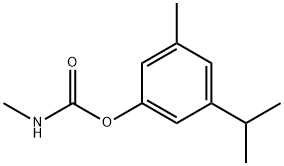
What is PROMECARB?
Chemical properties
Colorless, crystalline solid. Insoluble in water; soluble in alcohol.
Chemical properties
Promecarb is a colorless, odorless, crystalline solid
The Uses of PROMECARB
Insecticide.
The Uses of PROMECARB
Promecarb is a carbamate pesticide.
What are the applications of Application
Promecarb is a chemical compound used as an insecticide.
Definition
ChEBI: Promecarb is an alkylbenzene.
General Description
Almost odorless, colorless crystalline solid. Used as a non-systemic contact insecticide. Not for sale or use in the USA.
Reactivity Profile
PROMECARB is a carbamate ester. Carbamates are chemically similar to, but more reactive than amides. Like amides they form polymers such as polyurethane resins. Carbamates are incompatible with strong acids and bases, and especially incompatible with strong reducing agents such as hydrides. Flammable gaseous hydrogen is produced by the combination of active metals or nitrides with carbamates. Strongly oxidizing acids, peroxides, and hydroperoxides are incompatible with carbamates.
Hazard
Toxic by ingestion.
Health Hazard
PROMECARB is highly toxic by ingestion and is absorbed through the intact skin. It is a reversible cholinesterase inhibitor and its effects are related to action on the nervous sysem.
Fire Hazard
(Non-Specific -- Carbamate Pesticide, Solid, n.o.s.) Container may explode in heat of fire. Fire and runoff from fire control water may produce irritating or poisonous gases. Hydrolyzed by alkalis. Stable. No changes observed on storage for 140 hours at122F.
Potential Exposure
A potential danger to those involved in the manufacture, formulation or application of this non- systemic contact insecticide.
Shipping
UN2811 Toxic solids, organic, n.o.s., Hazard Class: 6.1; Labels: 6.1-Poisonous materials, Technical Name Required.
Incompatibilities
Alkalis.
Waste Disposal
Small quantities: treat with alkali and then bury. Large quantities: incineration . In accordance with 40CFR165, follow recommendations for the disposal of pesticides and pesticide containers. Must be disposed properly by following package label directions or by contacting your local or federal environ- mental control agency, or by contacting your regional EPA office.
Properties of PROMECARB
| Melting point: | 87.5℃ |
| Boiling point: | 117℃ (10-12 Torr) |
| Density | 1.0681 (rough estimate) |
| refractive index | 1.5220 (estimate) |
| storage temp. | 0-6°C |
| solubility | Chloroform (Slightly), Methanol (Slightly) |
| form | Crystalline |
| pka | 12.37±0.46(Predicted) |
| color | White to Off-White |
| Water Solubility | 92mg/L(room temperature) |
| Merck | 13,7875 |
| BRN | 2111695 |
| CAS DataBase Reference | 2631-37-0(CAS DataBase Reference) |
| EPA Substance Registry System | Promecarb (2631-37-0) |
Safety information for PROMECARB
| Signal word | Danger |
| Pictogram(s) |
 Skull and Crossbones Acute Toxicity GHS06  Environment GHS09 |
| GHS Hazard Statements |
H300:Acute toxicity,oral H311:Acute toxicity,dermal H410:Hazardous to the aquatic environment, long-term hazard |
| Precautionary Statement Codes |
P273:Avoid release to the environment. P280:Wear protective gloves/protective clothing/eye protection/face protection. |
Computed Descriptors for PROMECARB
New Products
Tert-butyl bis(2-chloroethyl)carbamate (S)-3-Aminobutanenitrile hydrochloride N-Boc-D-alaninol N-BOC-D/L-ALANINOL N-octanoyl benzotriazole 4-Hydrazinobenzoic acid 3,4-Dibenzyloxybenzaldehyde 1,1’-CARBONYLDIIMIDAZOLE R-2-BENZYLOXY PROPIONIC ACID 1,1’-CARBONYLDI (1,2-4 TRIAZOLE) 4-HYDROXY BENZYL ALCOHOL 3-NITRO-2-METHYL ANILINE (2-Hydroxyphenyl)acetonitrile 4-Bromopyrazole 5-BROMO-2CYANO PYRIDINE 5,6-Dimethoxyindanone 5-broMo-2-chloro-N-cyclopentylpyriMidin-4-aMine 4-methoxy-3,5-dinitropyridine 2-(Cyanocyclohexyl)acetic acid 2-aminopropyl benzoate hydrochloride 1-(4-(aminomethyl)benzyl)urea hydrochloride tert-butyl 4- (ureidomethyl)benzylcarbamate diethyl 2-(2-((tertbutoxycarbonyl)amino) ethyl)malonate Ethyl-2-chloro((4-methoxyphenyl)hydrazono)acetateRelated products of tetrahydrofuran
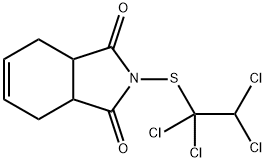
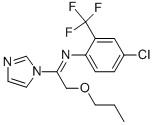
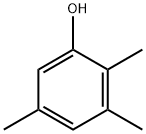

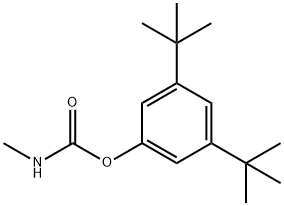
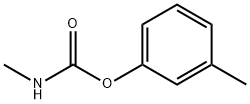
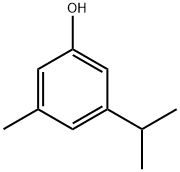
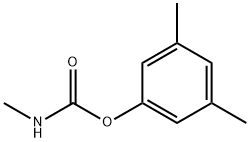
You may like
-
 873-83-6 6-Aminouracil (or) 4-Amino-2,6- dihydroxypyrimidine, (or) 6-Amino2,4-pyrimidinediol 99%View Details
873-83-6 6-Aminouracil (or) 4-Amino-2,6- dihydroxypyrimidine, (or) 6-Amino2,4-pyrimidinediol 99%View Details
873-83-6 -
 55441-95-7 99%View Details
55441-95-7 99%View Details
55441-95-7 -
 N-Vinylformamide 99%View Details
N-Vinylformamide 99%View Details
13162-05-5 -
 Chloro Uracil 1820-81-1 99%View Details
Chloro Uracil 1820-81-1 99%View Details
1820-81-1 -
 207557-35-5 99%View Details
207557-35-5 99%View Details
207557-35-5 -
 2-ethyl-6-methyl-3-hydroxypyridine succinate 99%View Details
2-ethyl-6-methyl-3-hydroxypyridine succinate 99%View Details
127464-43-1 -
 2-ETHYLPYRIDINE 100-71-0 99%View Details
2-ETHYLPYRIDINE 100-71-0 99%View Details
100-71-0 -
 181228-33-1 (S)-Methyl 3-amino-2-((tert-butoxycarbonyl)amino)propanote Hydrochloride (DAP-OMe. HCl) 99%View Details
181228-33-1 (S)-Methyl 3-amino-2-((tert-butoxycarbonyl)amino)propanote Hydrochloride (DAP-OMe. HCl) 99%View Details
181228-33-1